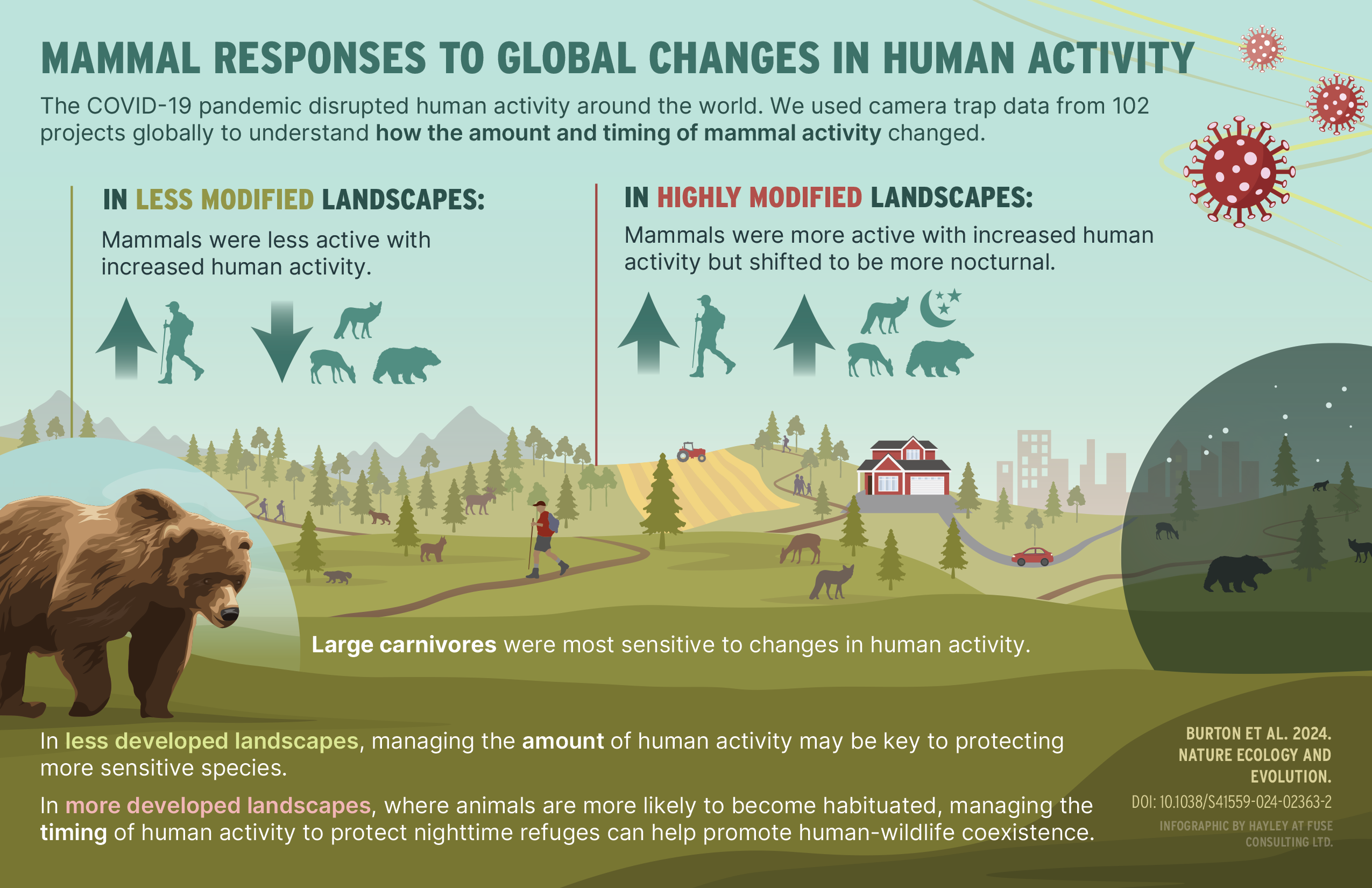As a part of a huge collaboration between Dr. Cole Burton, former Wildco postdocs, Dr. Chris Beirne, Dr. Catherine Sun, and Dr. Alys Granados, UBC collaborator Dr. Kaitlyn Gaynor and many others, we recently published a global study that investigated the response of mammals to the COVID-19 pandemic. While the pandemic was a tragedy, the associated restrictions in human activity provided a unique experimental opportunity to evaluate changes in animal activity relative to changes in human activity.
In particular, our research found that the response of wild animals to humans depended on two main factors: (1) their position on the food chain and (2) the level of human development at a particular study site. For example, carnivores were more wary of human presence than herbivores. When compared to their rural counterparts, urban animals seemed to be more tolerant of human activity, often shifting to more nocturnal activity patterns to coexist with human activity. In general, the study highlights the importance of considering the locational context of human activity and species-specific behavioral responses to promote human-wildlife coexistence.

Read the study: here
Featured news articles: New York Times, CBC, Scientific American, The Conversation